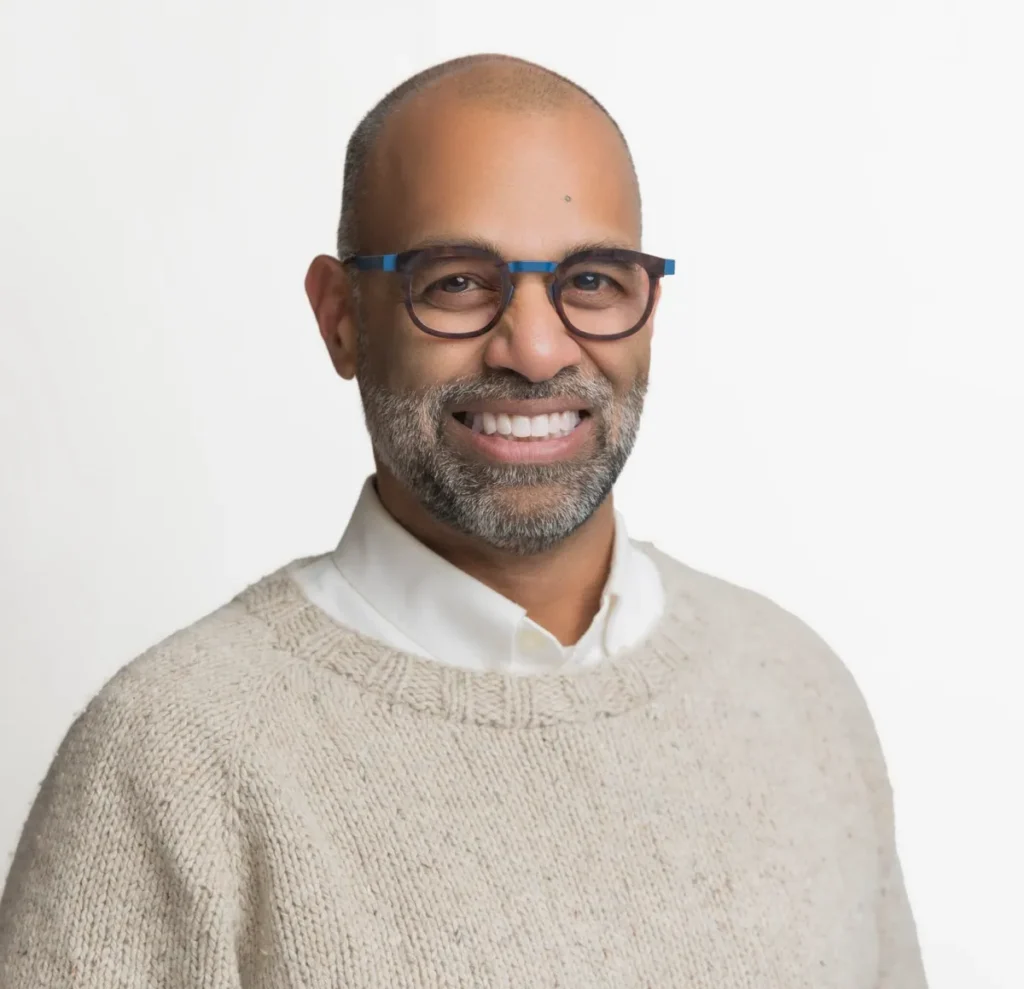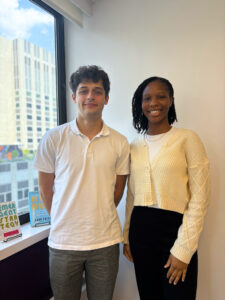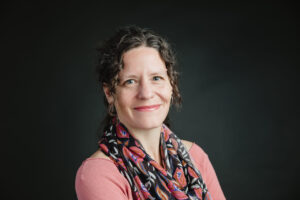What is one of your earliest memories of the power of human connection?
To answer that, I should start with a bit about my early life. I was born in Switzerland to parents of Indian descent. My father was one of two recipients of a worldwide scholarship to pursue a PhD in civil engineering at Lausanne, Switzerland. It was 1962, and he arrived without a coat, not knowing French. He taught himself French, completed his PhD, and was asked to stay.
After he and my mom had an arranged marriage, she joined him in Switzerland. I was born there, as was my sister. Eventually, my parents decided Switzerland felt too xenophobic to raise a family, so we moved to the United States. We moved around a lot before settling in Milwaukee, Wisconsin, where my father became a professor at Marquette University.
Growing up, I moved frequently and didn’t have many deep connections. However, one of my mother’s superpowers was her ability to bring people together. I vividly remember how, in Milwaukee, she would gather families and kids — Indians in the diaspora, which wasn’t very large there — for weekends of joy and connection. She didn’t stop there; she would organize and create plays and musicals in Indian languages like Telugu.
Watching my mother in action, the beautiful whirling dervish that she was (and still is), I saw the incredible value of bringing people together in joy, celebration, and shared creativity. Those moments shaped me deeply and taught me the power of human connection down to my core.
What values guide your personal life and also your work?
I’m blessed to have two parents who are among the humblest people I know. My father grew up on a rice farm in a town of 600 people. My grandfather, with four sons and two daughters, earned just 30 rupees a month but spent 24 of them on his children’s education. All six of them went on to earn college degrees and eventually moved to the United States.
My mother is equally humble. Both of my parents just lived their lives, not for recognition or validation, but because it was the right thing to do. I look at them as role models and hope I carry even a fraction of their humility into my own work.
I also believe that for humility to truly have power, it needs to be connected to grace. I have a deep belief in the inherent dignity of all people. Bringing that sense of grace into the work I do — especially when building bridges across differences and fostering empathy — has to come from this foundational understanding of our shared humanity.
Now, I realize that “grace” can often be seen as a religious term. For me, it’s not necessarily religious; it’s a human term. That said, for those who approach it through a religious lens, it can be deeply valuable too.
Finally, I’d say curiosity is a core value of mine. I’m a scientist by training. I studied molecular biology in college and initially wanted to contribute to finding a cure for AIDS. This scientific mindset has shaped me. I approach everything with curiosity, always wanting to understand problems and explore solutions.
When did a person or experience change your mind about an idea or belief?
I make a conscious effort to approach life with a posture of openness to new ideas. So, when you ask if people challenge my views and beliefs, I’d say that happens every single day, especially with my senior leadership team.
I don’t think you can solve true human problems without maintaining that kind of openness 100 percent of the time. You never know when a moment will arise when someone challenges you or where you create space to fundamentally rethink an issue or an idea.
For example, my daughter plays on a travel club volleyball team here in Maine, and we’ve gotten to know the other girls and their families well. What stands out to me is that, if you asked me what most of these parents do for work, I couldn’t tell you. If you asked who they voted for, I wouldn’t know, and I’m pretty sure it’s a mix.
It’s fascinating to me because, when I lived in Washington, DC, for 25 years, those two questions — what someone does for work and who they vote for — were often the first thoughts you’d have about people. Here, it’s different. It’s allowed me to develop a more comprehensive view of people and to recognize that there’s so much more to someone than just those two dimensions.
What are you working on right now?
I’m currently working with more than 115 college presidents to explore how we can better prepare students for civic engagement on college campuses. This involves everything from helping students build skills for thoughtful discourse and translating those skills into community problem-solving, to reflecting on their roles in society and their sense of purpose.
The presidents and their institutions are at various stages of this journey, so my work includes supporting them in identifying strong nonprofit partners, measuring the effectiveness of civil discourse at both the program level and in campus climate, and fostering collaboration to learn from each other as we stumble, fall, stand up, and move forward.
Another exciting aspect of my work is supporting youth civic leaders across the country. A few years ago, we launched the Civic Spring Fellows program to empower young people with ideas to improve their communities. We provide financial support, communities of practice, and mentorship, while also connecting them with other young leaders across the country who are doing similar work.
Engaging with young people and college presidents alike is a source of energy for me. I often say that I go to bed every night completely exhausted but wake up every morning thinking, “We are doing good work.” Hearing their stories and seeing their passion reinvigorates me, even though this work is challenging.
What is giving you hope? What positive visions do you have for our future?
My vision for the future is hopeful for two very different reasons.
First, on a concrete level, I’m inspired by the young people we work with through various programs. For example, we recently held a youth civic competition where high school, college, and post-college participants submitted innovative solutions for civic knowledge, empowerment, and trust. Their ideas were both fascinating and energizing to see in action.
Second, I’m hopeful because so many people genuinely want to engage in this work. They are actively seeking purpose and belonging. As Einhorn Collaborative often emphasizes, having a deep sense of purpose and connection is critical, and it’s clear that people are searching for that.
I believe that many of my colleagues across the nonprofit sector, higher education, and philanthropy have valuable answers to offer. Our task now is to figure out how to bring those solutions together effectively.





